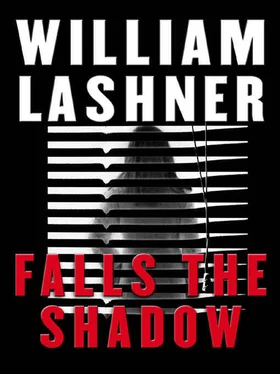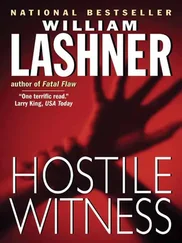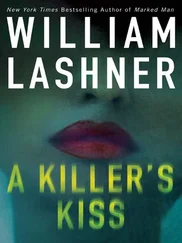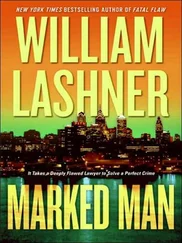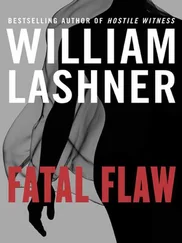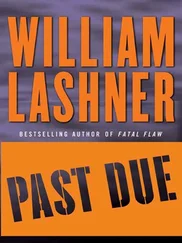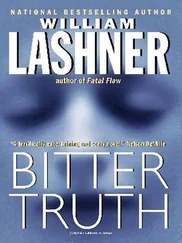“So this is what I beg of you, ladies and gentlemen. Listen carefully to all the evidence, and as you do, ask yourself who is the more likely culprit, Leesa’s husband, the father of her child, or the violent stranger who swept into her life shortly before her murder and swept out of it just as quickly. And when this is over, and you’ve heard everything, I’m going to come back to you and ask you to return the only verdict you possibly can, a verdict that finds François Dubé not guilty of the murder of his wife.”
Mia Dalton was livid at my argument.
You could tell by her easy grin as she came up to me after the jury had been dismissed for the day, by her insouciant pose, by the hand calmly resting in her skirt pocket. Dalton didn’t grin unless she was angry, she was one of those lawyers who snarled at good news and smiled at trouble. At least I hoped so, because if Mia Dalton wasn’t livid after my opening, then I had done something seriously wrong.
“You going to bring it into the courtroom?” said Dalton. “Give it a number, lay a foundation to introduce it into evidence?”
“Bring in what?” I said.
“My Civic.”
“Liked that, did you?”
“It’s always fun when opposing counsel claims I’m too stupid to figure out the truth of a case because of the car I drive.”
“I wasn’t blaming the car. It’s not the car’s fault.”
“Why don’t you tell us the name of the deceased’s lover who you claimed murdered her?”
“Not quite yet.”
“If he’s a murderer, shouldn’t we take him off the street as a matter of public safety?”
“You’ve waited this long to get the right guy, I suppose a few more days won’t matter.”
“I suppose not,” said Dalton. “It’s never good practice to make a promise to the jury you won’t be able to fulfill.”
“Watch me.”
“Oh, I will, Victor, believe you me.” She winked. “And I’ll enjoy it, too.”
I didn’t like that wink. There was something in it that gave me a chill. Probably the usual Mia Dalton intimidation, but still, as I watched her walk out the courtroom door, I suspected she wasn’t as livid as I had hoped.
Mia Dalton wasn’t a rock star in court. She didn’t hold the jury spellbound in her fist, didn’t shoot off pyrotechnics in the middle of the trial, didn’t croon out like a crooner her sad, sweet ballad of blood and murder. More stonemason than Rolling Stone, she left the fireworks to the defense attorneys trying to bring down the house as she slowly and carefully laid her bricks of evidence. And that is precisely what made her such a devastating prosecutor. In the confines of the courtroom, never underestimate the riveting brilliance of sheer competence.
“She was a lovely girl, bright and lively, full of love, she was,” said Mrs. Cullen.
“And do you remember when she met the defendant?” asked Dalton.
“Oh, yes, I do, of course I do. She was head over heels. So happy she was, my little girl. So full of life and love.”
I could have stood and objected at that point. I could have yelled out “Hearsay” and the judge would have sustained my objection, and the love that Leesa Dubé told her mother she felt for my client could have been erased from the record, but what kind of idiot would do something like that? So I sat on my hands, and I let Mrs. Cullen have her say. Yes, Leesa was in love with François, yes, their wedding was storybook, yes, they were both excited about the baby, yes, everything was going so well. But of course François worked late hours at the restaurant, and of course there were the inevitable problems with money, and yes, of course, Leesa did feel abandoned and depressed after the baby came and François was less and less in evidence at their apartment.
“And then,” said Mrs. Cullen, “she found out about the affairs.”
“What was her reaction when she found out?”
“What do you think? She was devastated.”
Of course she was.
“And what did she do when she found out?”
“What do you think? She kicked the slime right out of the house and filed for divorce.”
Of course she did.
“Objection to the epithet,” I chirped.
“Sustained,” said the judge.
“Please try not to label the defendant a slime, Mrs. Cullen,” said Mia Dalton.
“I’ll try,” she said, “but it will be no easy task, Ms. Dalton, because he’s a slime if ever there was one.”
Of course he is.
Every murder trial has two questions: How and Why. When the answer to How is strong, when five people and a video camera catch the defendant take out a gun and pop the deceased, who the hell cares about the Why? But when the How is based on a mess of circumstantial evidence, as in the François Dubé case, suddenly the Why becomes powerfully important. Which explains why Dalton, ever the artisan, was holding the How for later and leading her case with Why.
After Mrs. Cullen testified about the deteriorating relationship between her daughter and her son-in-law, after she testified about the acrimonious divorce proceedings and the fights over Amber, after Mrs. Cullen was able to vent all the bile from her spleen, Dalton turned to me and said, “Your witness.”
There was so much I was ready to ask Mrs. Cullen, about her strained relations with her daughter, about how her daughter would never have confided in her about a lover, especially a bad boy like Clem, about her utter ignorance of what actually happened on the night of her daughter’s death. There was so much ammunition. I stood up, stared at Mrs. Cullen, and leaned forward as if readying to unleash the furious fusillade of my cross-examination.
“I am so sorry for your loss, Mrs. Cullen,” I said finally. “No questions for this witness.”
I have learned from our first president that sometimes retreat is the most aggressive strategy. She was the grieving mother, she had taken on the burden of the young granddaughter, she could do my client no good up there on the stand. Get her off, as quickly as possible, and move on, that was my plan. And as a side benefit, there was a little message to the twelve and two alternates who mattered. I am not going to ask her any questions ,I was telling the jury, because nothing that she said is of any import to the meat of the case. Nothing she can say makes it more likely that my client killed his wife.
As Mrs. Cullen climbed down from the stand and made her way out of the courtroom, Dalton stood and said, “Prosecution calls Darcy DeAngelo.”
Of course it does.
She looked quite tasty as she walked down the aisle, Darcy DeAngelo, one of the women who’d had an affair with François. She was a sturdy woman, with her hands tightly clasped and a thin, pretty face, and she was dressed for court, a modest skirt, low pumps, her hair pinned up. She made quite the tasteful impression, though probably not the one Dalton would have liked. If Mia Dalton had dressed her, she would have worn a black bustier and high-heeled shoes with straps that climbed her thigh, she would have had long, clawlike nails and makeup smeared bright, and she would have looked like she had just come in off a late-night shift on South Street. But no such luck for Dalton, although it might have been a nice sight to see.
As Darcy DeAngelo was sworn in, I took a quick look at the audience in the courtroom. A high-profile murder case always draws a nice crowd, and this was no exception: a few reporters, an artist trying to get my jawline right, the usual gang of time wasters finding their entertainment in the criminal courts. And then a more interested crew: the Cullens and their entourage; Detective Torricelli, sitting alongside Mia Dalton at the prosecution table; and my old friend Whitney Robinson III, keeping tabs on everything.
Читать дальше
